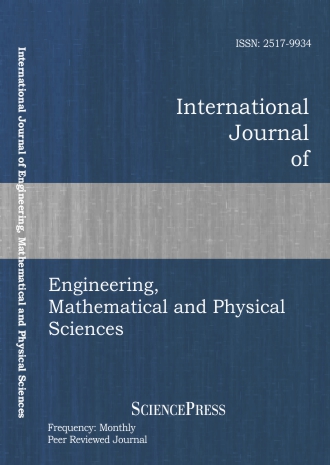
Scholarly
Volume:6, Issue: 11, 2012 Page No: 1567 - 1570
International Journal of Engineering, Mathematical and Physical Sciences
ISSN: 2517-9934
1106 Downloads
Heating of High-Density Hydrogen by High- Current Arc Radiation
The investigation results of high-density hydrogen heating by high-current electric arc are presented at initial pressure from 5 MPa to 160 MPa with current amplitude up to 1.6 MA and current rate of rise 109-1011 A/s. When changing the initial pressure and current rate of rise, channel temperature varies from several electronvolts to hundreds electronvolts. Arc channel radius is several millimeters. But the radius of the discharge chamber greater than the radius of the arc channel on approximately order of magnitude. High efficiency of gas heating is caused by radiation absorption of hydrogen surrounding the arc. Current channel consist from vapor of the initiating wire. At current rate of rise of 109 A/s and relatively small current amplitude gas heating occurs due to radiation absorption in the band transparency of hydrogen by the wire vapours with photon energies less than 13.6 eV. At current rate of rise of 1011 A/s gas heating is due to hydrogen absorption of soft X-rays from discharge channel.
References:
[1] Ph. G. Rutberg, A. A. Bogomaz, A. V. Budin, V. A. Kolikov,